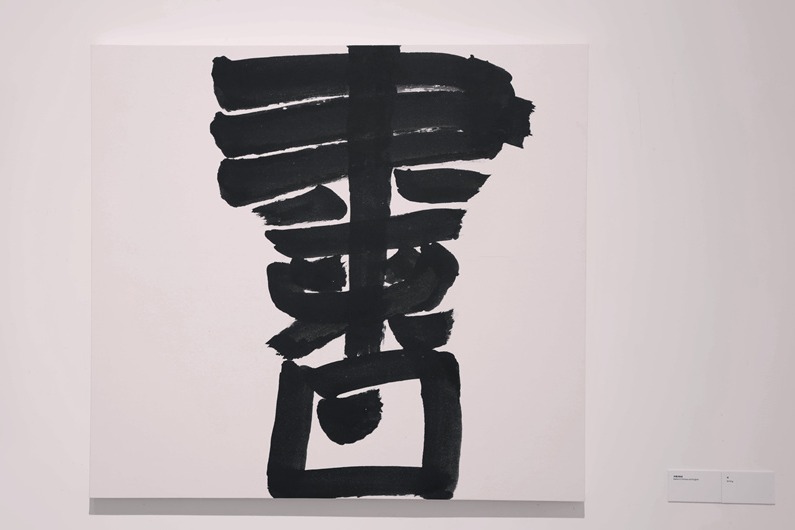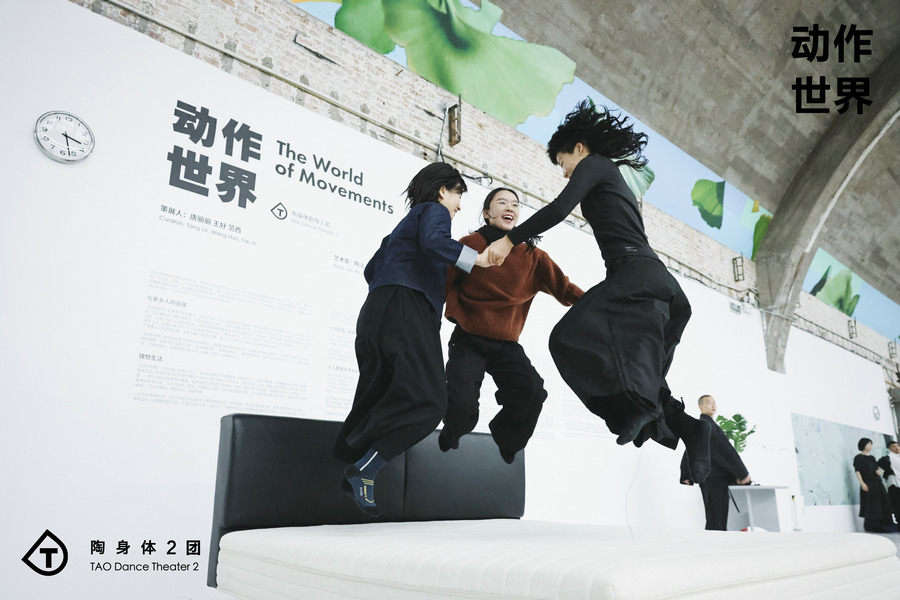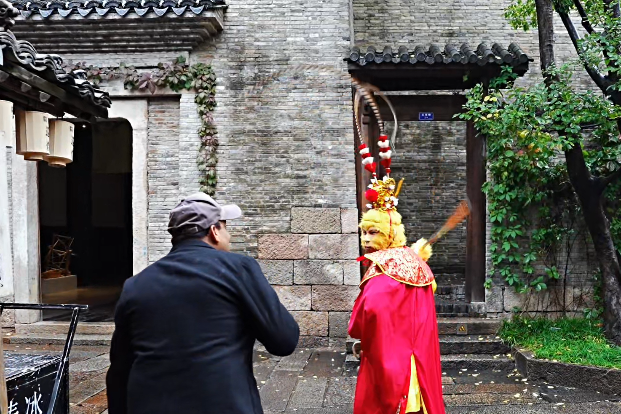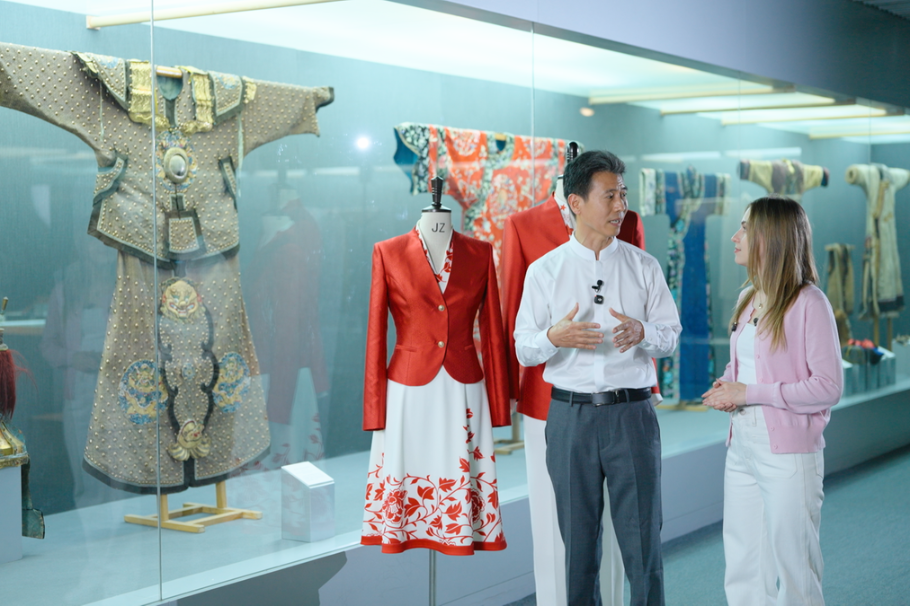TV drama weaves in Miao heritage
Huawu village inspires writer to pen a book, then a series, that highlights the region's development and exquisite ethnic embroidery, bringing the culture to a bigger audience, Xu Fan reports.

Livestreaming, catwalks on a T-shaped Paris stage, and high-end hotels might seem a world apart from a small village tucked deep in the Wumeng Mountains, once among the most impoverished regions of China.
However, Huawu village, meaning "a village at the foot of cliffs", in Southwest China's Guizhou province, has transformed into a popular tourist destination. It even inspired award-winning writer Ouyang Qiansen's novel, titled Mo Dao Jun Xing Zao (Ahead, But Not Alone).

The novel was first published in Chinese Writers magazine in 2022 and has since been translated into Japanese and Spanish. It is also scheduled to be translated into more foreign languages, including French, English and Russian, according to the China Writers Association.
Huawu village's transformation, an example of the country's decades-long poverty alleviation efforts, has been driven by a series of effective measures — from relocating villagers and developing local industries, such as ethnic embroidery, to building minsu, or Chinese-style bed-and-breakfasts, to boost tourism.

Over 95 percent of the villagers are people of the Miao ethnic group, with the rest belonging to the Yi and Han groups. Before its relocation, life in the mountains was extremely difficult. The only route connecting the village to the outside world had a vertical drop of over 300 meters. It took residents nearly two hours to climb out, and the narrowest part of the path required both hands and feet to navigate.
Now, after being resettled in a riverside area lined with white-walled, gray-tiled houses, families have witnessed remarkable improvements in their livelihoods. The average annual income has soared from less than 1,000 yuan ($140.4) in 2007 to over 30,000 yuan per person by 2024.
Further exploring the theme of poverty alleviation, Ouyang spent the two years after his novel's publication traveling to 156 villages across 36 counties in nine cities and autonomous prefectures in Guizhou province. He adapted his book into the script for The Depths of Wumeng, a TV drama that began airing on CCTV-1 and streaming on Mango TV on Nov 12.

Starring actress Mao Xiaotong and actor Qin Junjie, the drama began shooting in Huawu village in March and wrapped up filming in Renhuai in August.
Told with a comedic tone, the story follows Ma Qinghao — played by Qin — a well-educated local who returns to his hometown after working for seven years in Guiyang, the capital of Guizhou. Aspiring to develop the local hospitality sector, Ma reunites with his former love, Gun Yueliang — portrayed by Mao — a Miao embroidery artisan and inheritor of intangible cultural heritage. Despite a series of misunderstandings, the two eventually reconcile and join forces to promote the local cultural and tourism industries. Gun and her fellow Miao embroidery artists even take their designs abroad to showcase the distinctive Chinese fashion at a show in Paris.

A native of Xi'an in Northwest China's Shaanxi province, director Han Xiaojun says that the drama marks his first time gaining a deep understanding of the transformations taking place in Guizhou's rural areas, as well as the exquisite craftsmanship behind Miao embroidery.
"The Miao ethnic group has a long, rich history, but it lacks a formal written language. Over centuries, generations of Miao people have developed a tradition of stitching patterns, such as butterflies, birds and flowers, onto cloth to record their daily lives and understanding of nature. In this sense, Miao embroidery is often described as 'history woven on cloth,'" Han explains.

In order to demonstrate the unique artistic charm of the embroidery, the crew recruited more than 10 artisans to craft half of the drama's costumes. The silver jewelry ensemble, comprising a headdress, necklaces, bracelets, and rings worn by actress Mao, weighs more than 10 kilograms.
Han adds that the drama also aims to spotlight a new generation of villagers in rural China. Unlike their predecessors, who often had limited education and relied primarily on farming, the younger generation consists largely of college-educated individuals with professional experience in major cities.
Drawn by the growing opportunities in their hometowns, many have chosen to return, bringing with them not only knowledge and skills but also broader perspectives gained from their urban careers, which contribute to the ongoing vitalization of rural areas, Han says.

Jin Feng, a veteran actress who portrays another Miao embroidery artisan, says she was deeply impressed by Guizhou's breathtaking natural landscapes. After developing a strong interest in Miao embroidery, she purchased dozens of Pop Mart's Labubu dolls and made Miao-style costumes for them, hoping to promote the Miao ethnic aesthetics.
"The Miao embroideries are vividly detailed, with patterns inspired by nature and myth and reflect what the ethnic Miao people believe in and worship. I hope the drama can bring China's ethnic cultures to a global audience," says Jin.





































